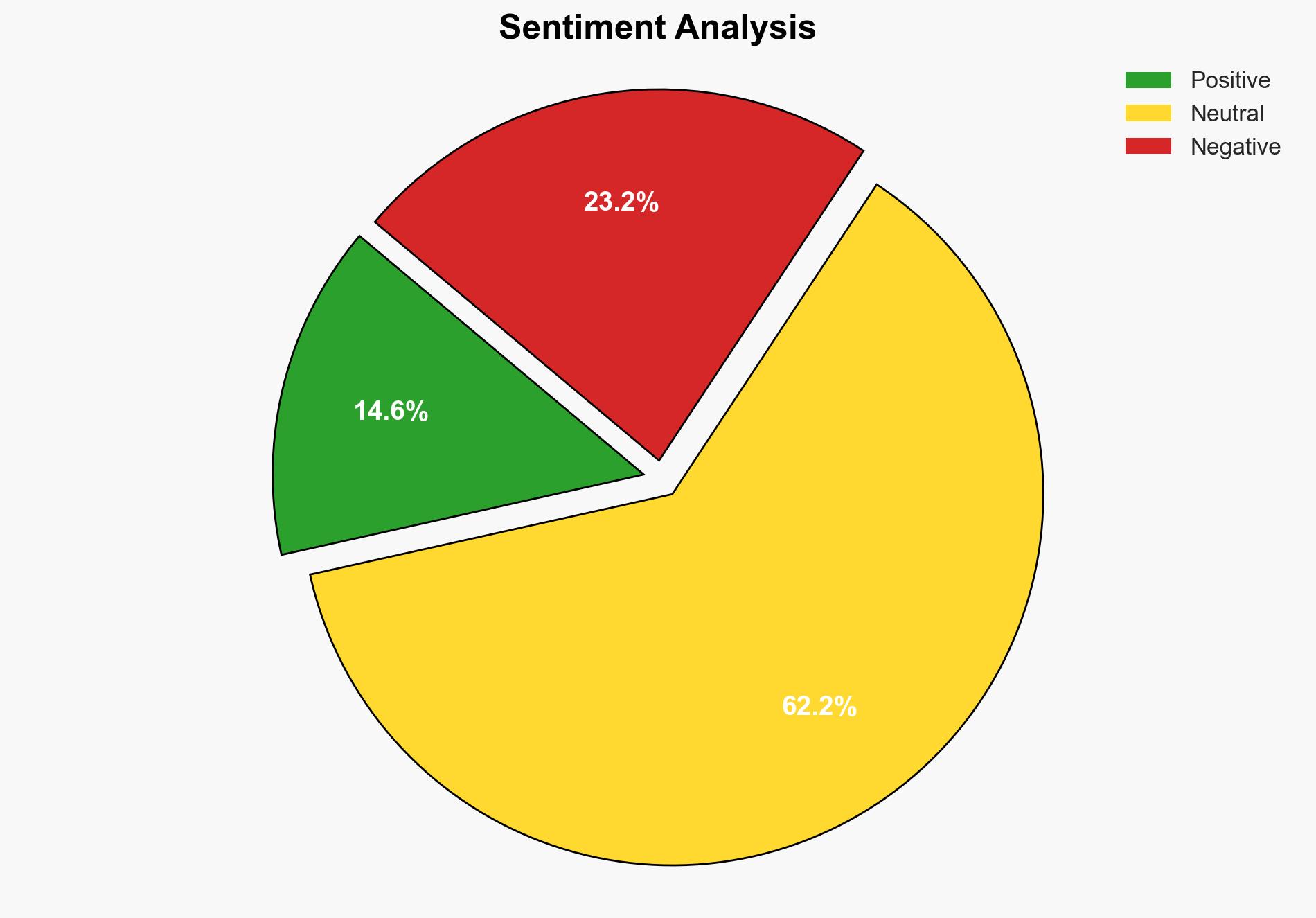Why the Fight Against Online Extremism Keeps Failing – Time
Published on: 2025-03-06
Intelligence Report: Why the Fight Against Online Extremism Keeps Failing – Time
1. BLUF (Bottom Line Up Front)
The fight against online extremism is failing due to fragmented content moderation across platforms, inconsistent enforcement, and the ability of extremist groups to adapt and exploit gaps in moderation policies. Key recommendations include the need for a coordinated, ecosystem-wide approach to content moderation and the establishment of consistent enforcement protocols across platforms to effectively dismantle extremist networks.
2. Detailed Analysis
The following structured analytic techniques have been applied for this analysis:
Scenario Analysis
Multiple future scenarios indicate that without a unified approach, extremist groups will continue to find digital spaces to recruit and organize, posing ongoing threats to national stability.
Key Assumptions Check
It is assumed that current content moderation efforts are sufficient; however, this analysis challenges that assumption, highlighting the need for more robust and coordinated strategies.
Indicators Development
Indicators of escalating threats include increased activity on fringe sites, the use of encrypted messaging apps, and the resurgence of extremist accounts on mainstream platforms.
3. Implications and Strategic Risks
The failure to effectively combat online extremism poses significant risks to national security, including the potential for increased radicalization and recruitment. Regional stability may be affected as extremist ideologies spread, and economic interests could suffer due to potential disruptions and the costs associated with increased security measures.
4. Recommendations and Outlook
Recommendations:
- Implement a coordinated, multi-platform approach to content moderation with consistent enforcement protocols.
- Invest in developing robust trust and safety capabilities, particularly for smaller platforms.
- Encourage regulatory frameworks that support collaboration between platforms and government agencies.
Outlook:
In the best-case scenario, a coordinated approach leads to a significant reduction in online extremism. In the worst-case scenario, continued fragmentation allows extremist groups to thrive. The most likely outcome is a gradual improvement as platforms begin to align their policies and enforcement efforts.
5. Key Individuals and Entities
The report references significant individuals such as Elon Musk and entities like Meta and Twitter, highlighting their roles in shaping content moderation policies. However, specific roles or affiliations are not detailed.




